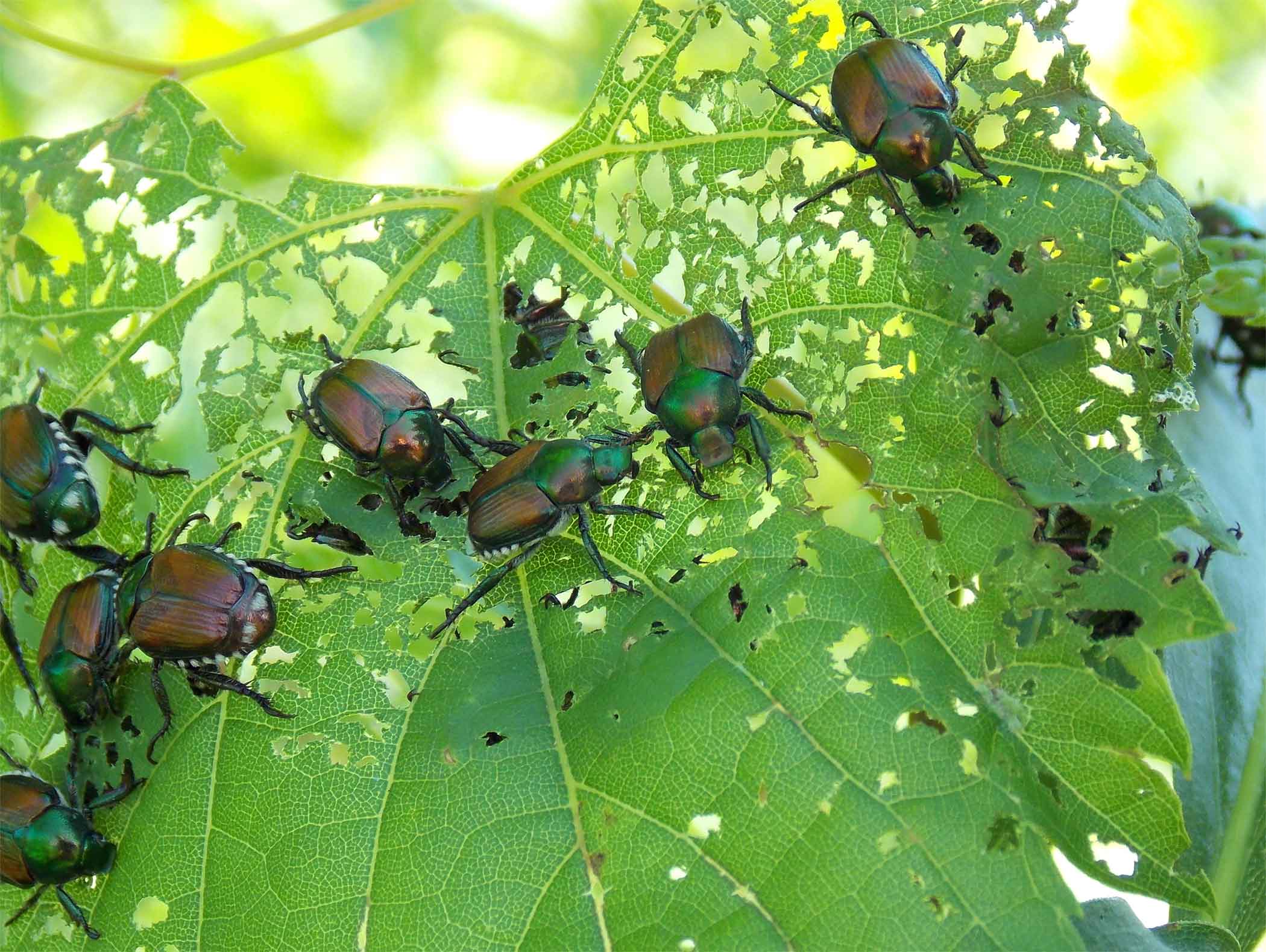Blog

Ask Dr. Phipps: Get a Jump on Japanese Beetles!
Have a question about your perennials, houseplants or turf grass? Worried about pests in the garden, hydrangeas that won't bloom, or tomatoes that died on the vine? Dr. Phipps can help! Ask Dr. Phipps is a free service provided by Phipps Master Gardeners. Contact us with your questions and you may be featured in an upcoming blog post!
Q: Japanese beetles are eating the leaves of my roses. What can I do to help stop the damage? I have read about Japanese beetle traps. Should I use these?
A: Thank you for contacting Dr. Phipps. Roses are such lovely plants and so delightful to see and smell. Japanese beetles can do so much damage to that loveliness.
A few years ago I attended a workshop with Sandy Feather, a Penn State Extension Educator with expertise in Integrated Pest Management. She addressed Japanese beetle damage on roses and mentioned not using the traps as they attract more beetles. The insecticide that is used for them is also toxic to bees, so I would not recommend it.
She suggested visiting your plants regularly and knocking off the beetles into soapy water. They do tend to drop to the ground when disturbed so this is a good strategy. One way to do this is to place the container with soapy water under the place where the Japanese beetles are feeding and hold your other hand over the area. The beetles will drop right into the soapy water. This works best in the morning when they are still slow moving. If you do this later in the day, they may just fly away. This method also works well on small planting areas. Larger plantings may need different control.

For more information, look over these articles from Penn State College of Agricultural Studies and University of Kentucky College of Agriculture, Food and Environment. The latter shows a graphic of the beetles’ life cycle. Knowing when a pest is susceptible to intervention is the only effective way to deal with them. For example, treating the lawn with Milky Spore when the grubs are feeding. Interrupting the life cycle at any stage will significantly reduce the population.
Good luck with your roses.

